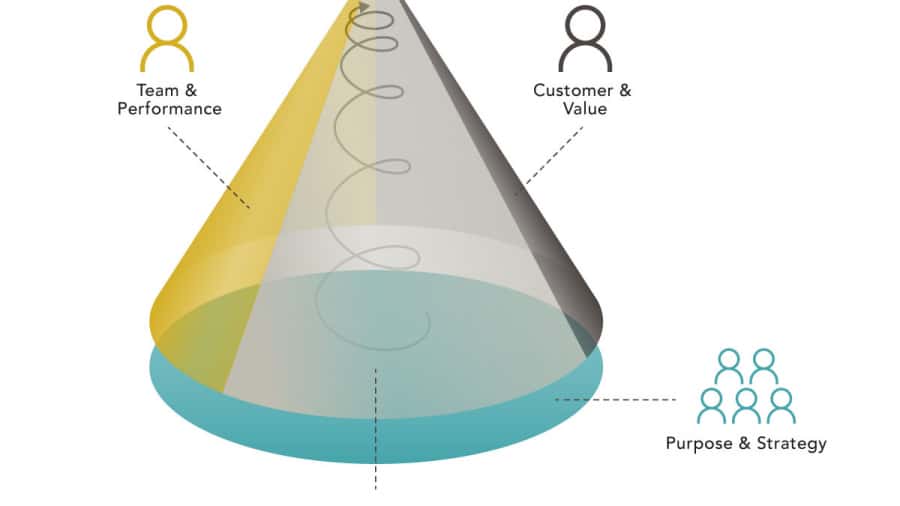Shared LeaderShift in experimet
26.09.2021
About two years ago, Eva-Maria Danzer and Barbara Wietasch exchanged their experiences on leadership and transformation. This led to the development of the Shared LeaderShift model. The approach to leverage the transformation of organizations through shared leadership. Just as the first practical tests were about to start, the pandemic entered the scene. So Shared LeaderShift had to rest for a while to prove itself in practice. But now we are starting with it: Shared LeaderShift in experiment.
Shared LeaderShift Deep Dive
First, let’s take a look at the model. What exactly distinguishes Shared LeaderShift? The idea behind this approach is to divide leadership among several shoulders and then provide it in cooperation. Unlike already familiar models such as job sharing, the idea is not that several, usually two, people share one leadership role. Rather, there are several leadership roles, each of which is performed by different people.
Shared LeaderShift is based on four different roles: the actual leadership is shared by three roles – the People & Culture Lead, the Team & Performance Lead and the Customer & Value Lead. They work together in the day-to-day business and deliver leadership performance together and at eye level.
These three roles are supplemented by the Purpose & Strategy Lead, which, following the model, is not performed by one person but by a team across the organization.
Here you can find a video showing how these roles work together in the company.
Shared leadership is on the rise
The model developed by Barbara and Eva has in theory already proven its future potential. For some time now, they have been popping up everywhere on shared leadership models. Currently still increasingly at home in job sharing. However, now also increasingly – coming from the agile world and from Scrum – in approaches with actually shared leadership roles. Especially in the IT environment, the People & Culture Lead has already established itself as an independent role. Examples can be found in this podcast, in which People & Culture Lead reports on her role, and in the current video from bonprix, part of the Otto Group.
What makes Shared LeaderShift unique
However, Shared LeaderShift (SLS) goes well beyond the approaches mentioned here. Two areas in particular should be highlighted:
The role of the Customer & Value Lead, which gives the customer a permanent place in the daily business of leadership and thus expands leadership to include the external perspective. I.e., every mini-leadership team is already cross-functional as well
And:
The interface of collaboratively and equally provided shared leadership to the corporate culture (and here then also the Purpose & Strategy Lead).
The SLS model is based on collaboration and cooperation as core values. Every decision in the leadership team is discussed and found together. This not only creates harmony in external perception, it also provides a role model for self-organization and decision-making.
Shared LeaderShift in experiment
Sounds innovative and inspiring. It seems conclusive in principle. However, it also raises questions such as:
– Doesn’t this approach require a lot more resources, i.e. don’t we have then three FTEs in management instead of one?
– Doesn’t this create chaos? Whom are the employees supposed to address then?
– Isn’t it incredibly time-consuming to make all decisions together in the management team?
– What conditions must be met for this to work at all? Are managers capable of this kind of leadership?
We think these are justified questions that can only be answered by testing them in practice.
And that is why we have now set out with Shared LeaderShift as an experiment at The Company Journey Guides.
Over a period of 6-9 months, we will practice SLS in our team.
Since August, we have taken the three roles in operational leadership and are currently adjusting to it.
As the consulting approach of Shared LeaderShift suggests, the work in the leadership team is done under guidance or supervision.
We will share our experiences from time to time in further TCJG Cases and finally evaluate them.
The initiators of SLS, Eva-Maria Danzer and Barbara Wietasch, will make their findings available in a further white paper on Shared LeaderShift.
More on the topic also in this TCJG blog: From Leadership to Leader Shift









